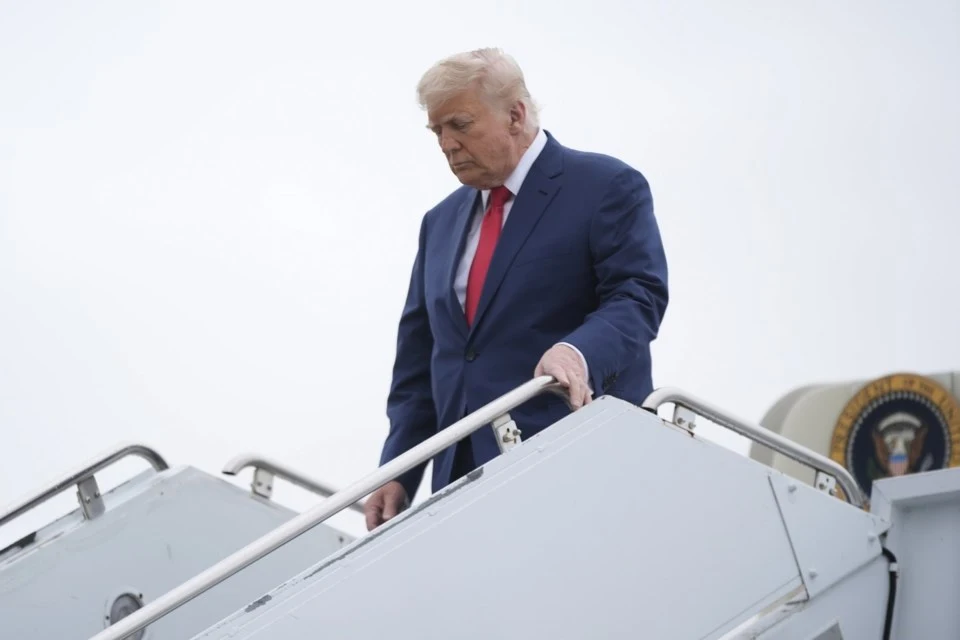 Trump Expands Travel Ban to 12 Countries, Sparking Global Criticism
Trump Expands Travel Ban to 12 Countries, Sparking Global Criticism
Published on June 11, 2025 | By Today International News
Washington, D.C. – Former U.S. President Donald Trump has unveiled an expanded version of his controversial travel ban, now blocking entry from 12 countries, many of which are experiencing armed conflict or political instability. The policy, announced during a campaign rally and formalised by executive order, has already sparked global outcry and reignited fierce domestic debate over immigration, national security, and human rights.
The expanded list includes Yemen, Sudan, Libya, Myanmar, Syria, Afghanistan, Somalia, Iran, Iraq, Nigeria, Venezuela, and North Korea. Officials from the Trump campaign argue the move is necessary to protect American citizens from potential security threats, but critics say the measure is arbitrary and rooted in discrimination.
A Renewed Push for “Extreme Vetting”
Trump, who is seeking re-election in 2024 and has made immigration a central theme of his campaign, framed the ban as a key component of his national security strategy. “We will not allow terrorists or criminals from failed states to threaten our great nation,” he said in his announcement. “We are restoring common sense and putting American safety first.”
The policy claims to target nations that “lack adequate identity verification or data-sharing or pose a heightened security risk” and imposes strict visa restrictions or outright bans on travel from the listed countries. Exceptions may be made for diplomats and humanitarian workers on a case-by-case basis, according to administration sources.
Critics Call It “Cruel and Inconsistent”
Human rights organisations, immigrant advocacy groups, and international legal experts have condemned the move. The American Civil Liberties Union (ACLU) released a statement calling the policy “a cruel and unnecessary restriction that will separate families, disrupt humanitarian efforts, and fail to make Americans any safer.”
“This is not about safety—it’s about fear,” said ACLU attorney Maria DeLuca. “The ban targets vulnerable populations fleeing war, persecution, and poverty.”
Legal experts have also questioned the consistency and criteria of the ban, noting that many excluded countries with similar instability or terrorism risks remain unaffected. For example, nations like Pakistan and Egypt are not included, despite having similar security profiles.
Backlash from Affected Countries
Several governments have responded with outrage. Officials from Sudan and Libya called the decision “deeply unjust and politically motivated”. Yemen’s foreign ministry said the move punishes civilians who are already victims of war.
The policy has also created diplomatic tension with nations considered U.S. allies. Nigeria, Africa’s most populous country and a major economic partner, expressed “grave concern” over its inclusion on the list.
Some countries are reportedly considering reciprocal restrictions on U.S. citizens and diplomats in response.
Impact on Families, Refugees, and Aid Workers
The expanded ban is expected to have an immediate impact on families awaiting reunification, as well as refugees and humanitarian organisations. Nonprofit groups working in conflict zones have warned that the ban will slow down aid operations, block key personnel, and limit refugee resettlement efforts.
The International Rescue Committee (IRC) described the policy as “a step backward for global humanitarian leadership”.
“People fleeing bombs and persecution should not be treated as threats,” said IRC regional director James Holloway. “This ban sends a message that America is closing its doors to the world’s most vulnerable.”
Legal and Political Challenges Ahead
Legal analysts predict a wave of lawsuits challenging the new restrictions, especially given the Supreme Court’s past split decisions on similar travel bans during Trump’s first term. Civil rights organisations are already preparing to file motions in federal courts, arguing the ban violates constitutional protections and international obligations.
Meanwhile, President Joe Biden, Trump’s 2020 rival and political opponent, condemned the announcement, stating, “This is not who we are as Americans. We don’t turn our backs on people fleeing for their lives.”
Conclusion: A Divisive Policy Returns
As Trump revives one of the most controversial policies of his presidency, the United States finds itself once again debating the balance between national security and moral responsibility. Whether the expanded travel ban will stand up to legal scrutiny or political opposition remains to be seen—but its impact on real people and global perception is already being felt.
